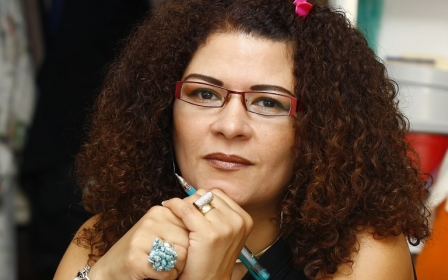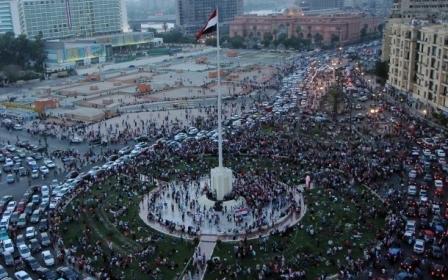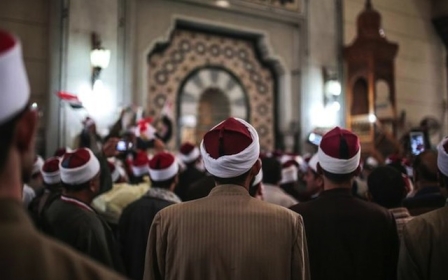Egypt sentences author for 'sexually explicit' novel

An Egyptian novelist was sentenced to two years in prison on Saturday by a Cairo appeals court for publishing a sexually explicit excerpt of his book that prosecutors said violated "public modesty".
Ahmed Naje, whose book The Use of Life was published in August 2014, was initally acquitted after a private citizen filed a complaint after the Akhar al-Adab magazine published the excerpt, which also included references to characters' drug use.
The court ordered the magazine's editor-in-chief, Tarek al-Taher, to pay to a fine of 10,000 Egyptian pounds ($1,227).
Egypt's activists, novelists and NGOs reacted with outrage and condemned the sentencing, asking who determines what "public modesty" is.
Speaking to CBS television, Naje said that he was charged with "violating public morals".
“One of the readers claimed that he was ashamed while reading the chapter of the novel, and then he complained to the prosecutor," he said.
Naje was initially acquitted, but prosecutors appealed the verdict, and in the latest ruling he received the maximum penalty.
Naje's lawyers plan to seek a review or annulment of the verdict in a request to the public prosecutor, who could in turn send the case to another appeals court.
The excerpt was translated from Arabic into English and published on the Arab Literature website last month. Below is the scene that describes a group of people using drugs.
We stayed up until the morning smoking hash and competing to finish a whole bottle of vodka. I remember seeing the music dissolve into monkeys that clung to the ceiling ... Erections popping around the room ... Smoke, cigarettes, hashish. And more smoke.
According to Egypt's 2014 constitution, article 67 ensures the freedom of arts, where the "freedom of artistic and literary creativity is guaranteed, the State shall encourage arts and literature, sponsor creative artists and writers and protect their productions, and provide the means necessary for achieving this end".
The lawyers argued that the law in question, which prohibits publishing anything that "violates public modesty," is unconstitutional.
Mahmoud Othman, the lawyer representing Naje, argued that the initial court, which was a misdemeanor court, did not have jurisdiction over the case, as the law states that publishing cases should be handled by a criminal court.
Middle East Eye propose une couverture et une analyse indépendantes et incomparables du Moyen-Orient, de l’Afrique du Nord et d’autres régions du monde. Pour en savoir plus sur la reprise de ce contenu et les frais qui s’appliquent, veuillez remplir ce formulaire [en anglais]. Pour en savoir plus sur MEE, cliquez ici [en anglais].




